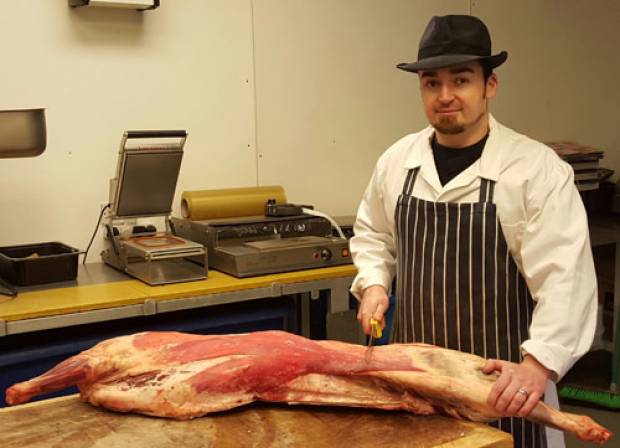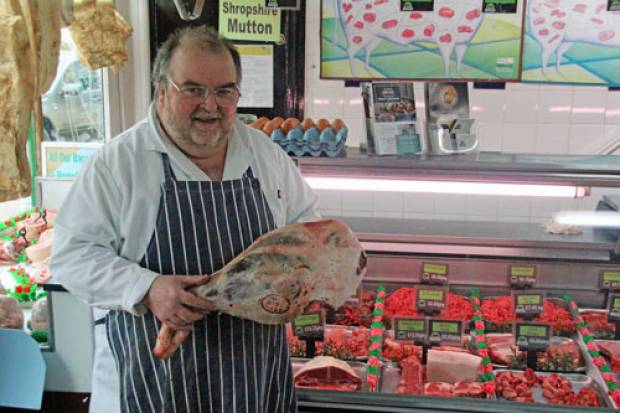Small is Beautiful
26th July 2016
When you know that a Welsh Borders butcher has won a coveted Great Taste Gold Award for his haggis, and his meat supply chains are just 10 or 20 food miles long, then you realise this must be someone with vision. Andrew Pugh established his first butchery around 1980. Now, with his son Tom, he has two shops either side of Offa’s Dyke, in Knighton (Powys) and Bishops Castle (Shropshire).
Andrew’s brother Clive farms with his wife Nina in the hills around Bishop’s Castle. Clive is another innovator. He was one of the first in the area to install a bio-digester for his then Holstein dairy unit. Since recently switching to Shorthorns, he has seen his feed costs tumble, and despite low milk prices, the herd makes a profit. Clive and Andrew’s next enterprise will be Shorthorn cheese, to supply their shops, with the whey feeding the bio-digester to generate more electricity for the grid. All very compact, tidy, and rather clever.
In the wake of Foot and Mouth, in the early 1980s, Clive wanted to add value to his Shropshire cull ewes, so working with Andrew, they decided to select the best animals, put a bit of finish on them, and by trial and error aim to recapture an almost forgotten taste of quality mutton, using a breed traditionally famed for its mutton.
Clive says it’s essential that he selects only the best ewes, after scanning and lambing, with the rest being sold at the local markets. He then gives them a good finish, but only using grass (he says the Shropshires are ideal for this). He supplies Andrew and Tom with a steady flow of animals as they need them. Clive delivers the ewes, together with his lambs, to Doug Griffiths who runs the local small abattoir at Leintwardine, 14 miles away.
After hanging the carcasses for about 14 days, Andrew and Tom butcher them according to demand at the time. Andrews says that legs are very popular locally, as is diced mutton. He and Tom sell their quality mutton at about 75% of the price of their Shropshire lamb. This attracts some buyers who cannot afford lamb, as well as those customers who love their mutton. Andrew, Tom and Clive agree a fixed price for the year which gives Clive more than he would get in the market, as Clive says “because they’re a better product”. Andrew and Tom get a predictable cost price, and their customers get a superb quality meat, with total transparency and traceability at a reasonable price. Everyone wins.
What advice do the Pughs have for others thinking of trying to market mutton? Clive says that the key is selecting the best ewes from a suitable breed, and then finishing them on grass, as you would lambs. He suggests that farmers contact their local butchers, develop a relationship, and test the waters.
To the Pughs, surviving as small businesses is all about offering a personal service, and offering the best quality and value, with innovation and a great story. It also helps if you can work together closely along the chain, especially if that chain is short. Selling superb family-reared Shropshire mutton works well for them all, and their customers. This is surely a case where small really is beautiful.




